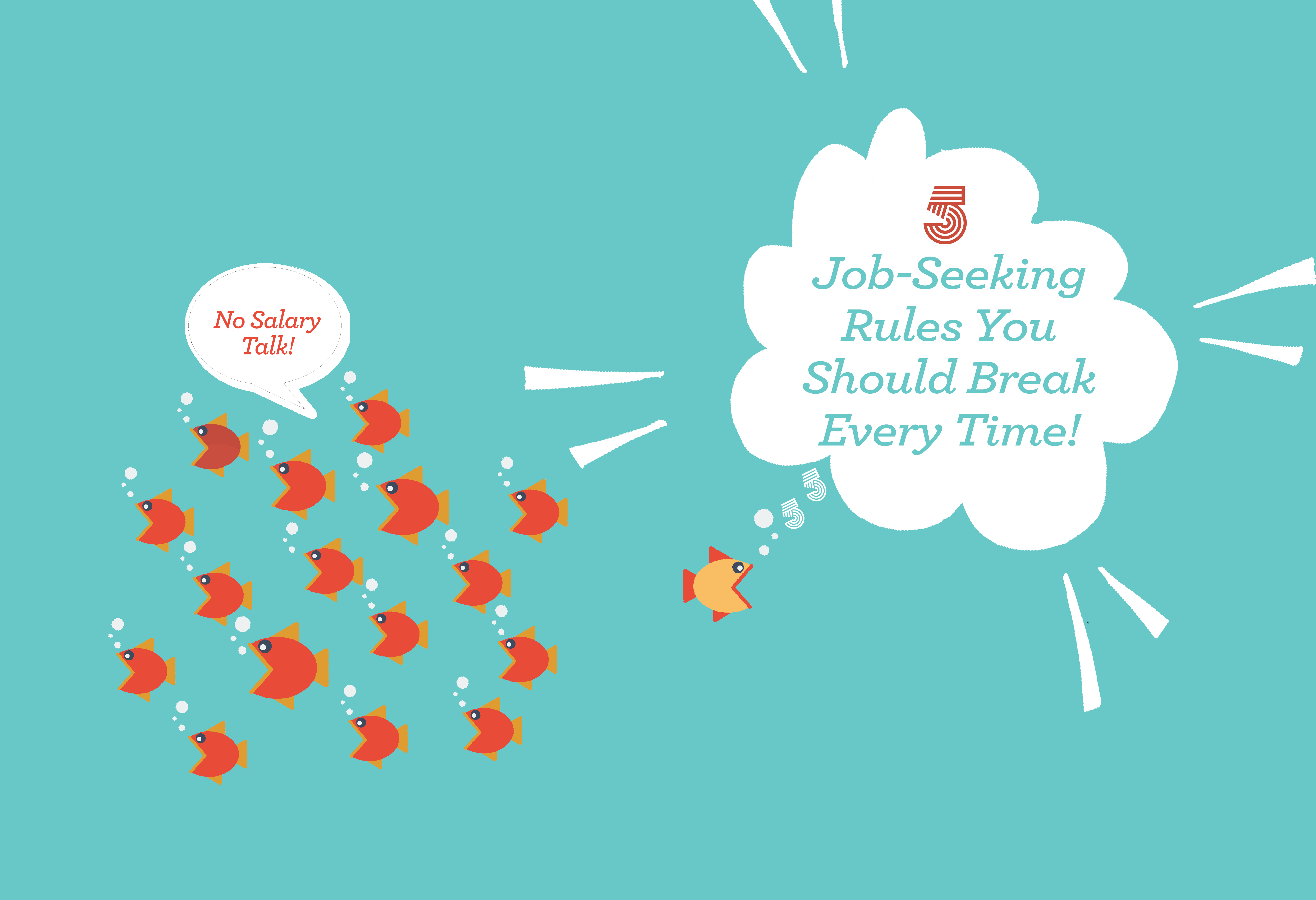Some advice is obviously good: “Buy low, sell high.” “Treat others as you would like to be treated.” “Don’t use raw eggs when you first take up juggling.” Some job-seeking advice is also obviously good: “Network to build connections and relationships.” “Never sell yourself short.”
However, there’s also a lot of really bad job advice out there, and those cruddy tips are even worse when they’re presented as rules. Some of those “rules” are the ones everyone knows, and just about everyone is wrong! Here are five job-seeking “rules” you should break every chance you get:
Keep your resume in the prescribed format.
This one is wrong on so many levels. First, there is no one format that’s right for every job-hunter, industry and job. Different industries have unique resume formatting variations, and it’s much more important that your resume’s format reflects your knowledge of the industry than follow a rote structure. What’s more, regardless of the industry you work in, you can find opportunities to be creative yet professional with your resume — two qualities that increase the likelihood your C.V. will catch the eye of a hiring manager.
Don’t talk about salary too early.
While your initial contact with a hiring manager or recruiter should never be “How much does this job pay?” it does make sense to have some discussion of compensation early in the conversation. It’s perfectly legitimate to ask a recruiter or applicant screener the salary range for the position toward the end of the initial interview. Ultimately, doing so benefits both you and the hiring manager; no one wants to waste time going through the interview process only to discover toward the end that you’re just too far apart on salary expectations to come to a meeting of the minds.
You nailed the interview, so you don’t need to follow up. Just sit back and wait to hear from them.
No matter how you did in an interview, following up is essential. If you did well in the interview, following up with a thank-you note or email lets the interviewers know you’re still engaged and interested. If you didn’t do well, and are pretty sure you’re not in the running anymore, good followup may or may not tip the scales in your favor. Either way, it will let the interviewers know you respect the time they spent interviewing you, and could lead to a positive connection that could be useful down the road.
Accept an unpaid or volunteer position with the company you’re interested in; if they like you, they’ll find a spot for you.
Unpaid or volunteer jobs can be a great way to build network connections, but don’t expect them to evolve into a job offer. After all, why should the company pay you when you’re willing to do the job for free?
Don’t waste time worrying about your social media profiles; no one gets hired through Twitter.
In a survey of employers earlier this year, CareerBuilder found 70 percent say they review social media to screen candidates in the hiring process — a 10 percent increase over last year. Further, 69 percent use search engines to research candidates. What are they looking for? Sixty-one percent are seeking info that supports a candidate’s job qualifications, half are looking at a person’s professional online persona, 37 percent want to know what others are saying about candidates, and 24 percent are just looking for any reason at all not to hire the candidate. How you conduct yourself on social media definitely matters to your job search.









